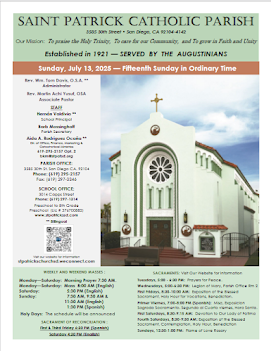Twenty years after 9/11, remembering the legacy of Fr. Mychal Judge
Mychal served as a chaplain to the New York City Fire Department, in addition to belonging to a community of Franciscans with whom I had come to know and love. Impish and gregarious, few were immune to his magnetic charism. With quintessential Irish swagger, his mere presence filled every room he entered. He was the very definition of larger than life.
That morning, as word spread of the explosions, he rushed to the scene, eager to support his NYFD congregation. After learning people were trapped in the wreckage, Mychal made a beeline for the north tower. Mychal was killed during the collapse of the south tower and subsequently classified as "Victim 0001," a fateful first in a day mired in tragedy.
The photograph of the retrieval of Mychal's body also made it into The New York Times. Carried out by the very men he served, this image is akin to a modern-day Pietà. A corpse cradled tenderly in the arms of those who loved him.
It's been 20 years since the towers fell. Twenty years since the walls of the Pentagon shook. Twenty years since a handful of courageous souls wrestled an airplane to the ground in the fields of Pennsylvania.
You can read the rest of this essay here.
Editorial: $3.5 trillion human infrastructure bill would address our country’s inequalities
As Congress returns to Washington, there is a lot on its plate, but the biggest issue of all is how to proceed on a $3.5 trillion human infrastructure bill. The margins are narrow: No Republican in either chamber is expected to vote for it, so the Democrats can only lose a handful of votes in the House and none in the Senate. Strange thing is, the provisions contained within the bill are wildly popular. What is more, the provisions represent a long-overdue investment in programs that will improve the lives of average Americans.
The specifics will be worked out by the individual committees, but who can argue that the $198 billion assigned to the Energy and Natural Resources Committee could not be well used by investing in the development of clean energy? Is there a more pressing need than confronting climate change?
The allocation of $135 billion to the Committee on Agriculture, Nutrition and Forestry will be used to deal with wildfires, drought and the reduction of carbon emissions. After the summer we have just had, with wildfires scorching large parts of the American West and drought threatening the nation's farms, is there any reason to spend less on these issues?
Read the rest of the editorial here.
More background:
-
Hurricane Ida hit New Orleans and surrounding areas in the U.S. state of Louisiana Aug. 29, serving as a grim reminder of the power of coastal storms — which are predicted to increase as the climate crisis rolls onward. Scientists and engineers have known for some time that wetlands (such as dense mangroves, tree-studded swamps, and grass-covered marshes) protect exposed coastlines and coastal cities from storms. But for places like London, Tokyo, New York and 19 of the world's largest cities built around estuaries — the wave-sheltered places where freshwater meets the sea — wetlands may be their silent superman.
-
ICYMI: The "present ills of our economy" invite Catholics to reflect on ways to propose new and creative responses to vital human needs in a post-pandemic world, said Archbishop Paul Coakley of Oklahoma City, chairman of the U.S. bishops' Committee on Domestic Justice and Human Development, in the U.S. bishops' annual Labor Day statement.
























No comments:
Post a Comment